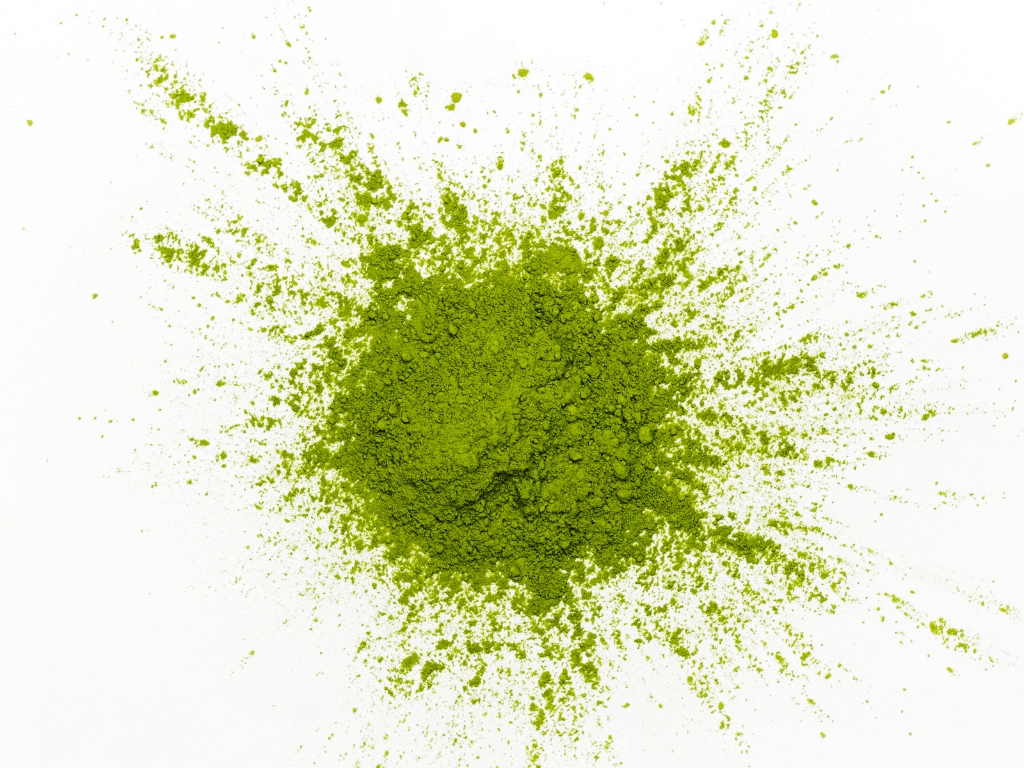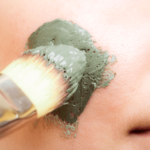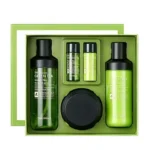Your Guide to Matcha: Benefits, Preparation, and Everyday Uses

Matcha has become a staple in the wellness community for its unique taste, vibrant color, and versatility.
Whether you enjoy it as a warm beverage, a smoothie ingredient, or even in skincare, this finely ground green tea powder offers a gentle way to support your overall lifestyle.
In this guide, we’ll explore the types of Matcha, its potential benefits, how to prepare it properly, and creative ways to use it every day—both in the kitchen and your self-care routine.
What Is Matcha?
Matcha is a type of green tea made by grinding specially grown tea leaves into a fine powder. Unlike traditional green tea, where leaves are steeped and discarded, matcha is consumed in its entirety, offering a concentrated dose of nutrients and antioxidants.
Matcha is typically grown under shade before harvest, which increases its chlorophyll and amino acid content, most notably L-theanine, a compound associated with calm alertness.
There are two main types:
Ceremonial grade – Best for drinking, made from the youngest leaves
Culinary grade – Ideal for cooking and baking
When buying matcha, opt for high-quality, organic options with a vibrant green color and smooth texture.
Matcha has been widely studied for its potential wellness benefits. Here are some of the most commonly reported:
Rich in antioxidants, including catechins like EGCG
Supports calm focus thanks to L-theanine
Provides a gentle energy boost from naturally occurring caffeine
Can be part of a balanced diet aimed at supporting metabolism
Note: While matcha contains caffeine, it’s typically well tolerated when consumed in moderation.
Types of Matcha Tea
Matcha comes in several varieties:
Ceremonial Grade
Made from the youngest leaves
Smooth, delicate flavor
Best for drinking plain with water
Culinary Grade
Slightly more robust flavor
Ideal for smoothies, lattes, and baking
Flavored Matcha
Combined with natural flavors like vanilla or mint
A good option for beginners
Each type has its own use case, so choose based on your preference and purpose.
How to Prepare Matcha
Creating a delicious matcha drink is simple with the right tools and steps.
Ingredients
1 tsp matcha powder
2 oz hot (but not boiling) water
Optional: milk or milk alternative
Instructions
Sift matcha to remove clumps
Add hot water and whisk in a zigzag motion using a bamboo whisk (chasen) until frothy
Enjoy it plain, or top with steamed milk for a matcha latte
Tip: Use water between 160–175°F (70–80°C) to prevent bitterness.
Matcha for Everyday Wellness
In Skincare
Matcha can be used in DIY face masks for a refreshing experience:
Mix with honey or yogurt for a gentle mask
Its antioxidant content may help soothe and brighten the appearance of skin
In Balanced Diets
Matcha is often included in healthy recipes and routines. It may help support:
Focus and clarity
Energy levels throughout the day
Mindfulness, when consumed as part of a daily ritual
Delicious Matcha Recipes
Here are some simple and fun ways to enjoy matcha.
Matcha Latte
1 tsp matcha powder
2 oz hot water
6 oz milk or milk alternative
Whisk and combine for a creamy drink.
Matcha Smoothie
1 frozen banana
1 cup spinach
1 tsp matcha
1 cup almond milk
Blend until smooth.
Matcha Face Mask (for external use)
1 tsp matcha
1 tsp honey
A few drops of water
Apply to clean skin for 10–15 minutes and rinse.
Where to Buy Quality Matcha
If you're looking for trusted brands and accessories, consider these options:
Ippodo Tea – Specializes in traditional Japanese teas
Matcha.com – Offers ceremonial and culinary grades
Amazon – For matcha sets, whisks, and bulk powders
Health-focused retailers Often carry organic and single-origin options
Look for:
Bright green color
Fine texture (not gritty)
Organic certification, when possible
Final Thoughts
Matcha is more than just a trend—it’s a centuries-old practice that continues to inspire wellness routines around the world.
Whether you sip it for morning focus, use it in recipes, or incorporate it into skincare, matcha offers a gentle and versatile way to support your lifestyle.
Start simple, choose quality products, and enjoy the calming, energizing benefits matcha can bring.
Leave a Reply




Related Posts